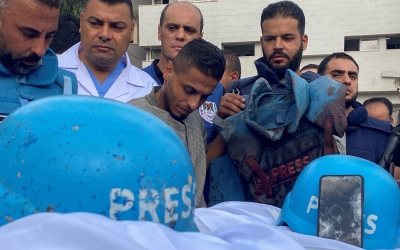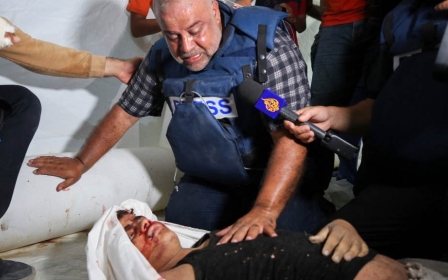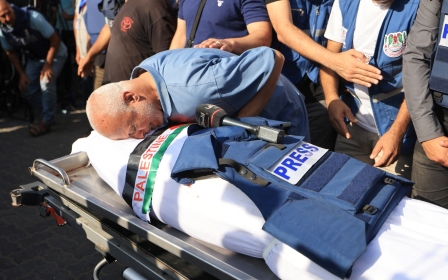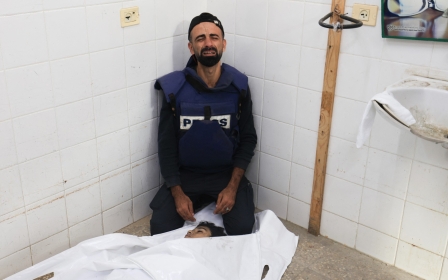Israel-Palestine war: Israeli government blocks Al Mayadeen TV
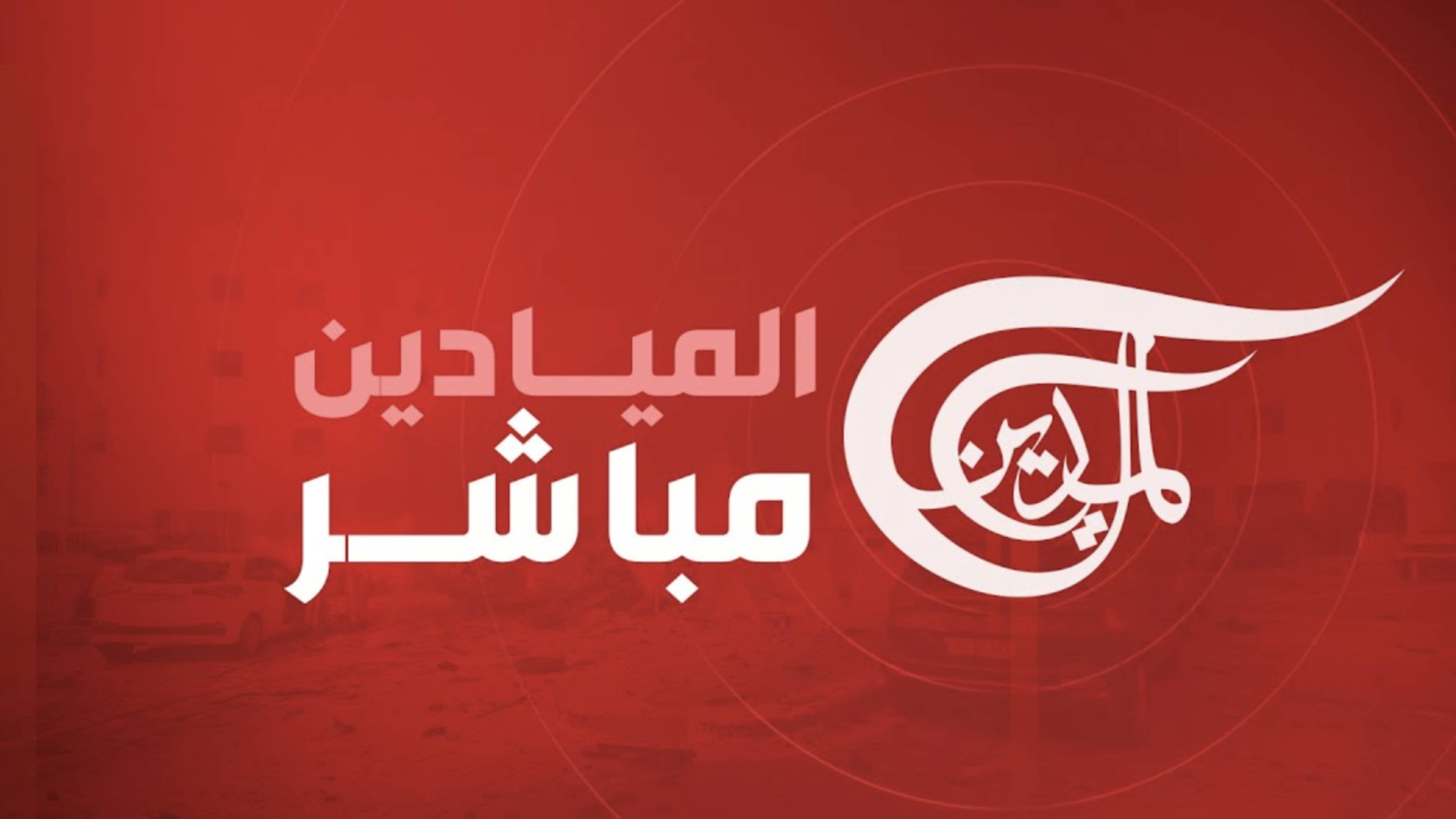
The Israeli government's security cabinet on Monday approved emergency measures to shut down the operations and broadcast of Beirut-based Al Mayadeen TV in Israel and the occupied West Bank.
The cabinet said in a statement that it had taken action against the channel for "making wartime efforts to harm [Israel's] security interests and to serve the enemy's goals".
The decision was taken after a proposal by Communications Minister Shlomo Karhi to block foreign broadcast networks and channels, close their offices and block their websites, to prevent them from undermining Israel's security.
"Immediately upon the cabinet approval this morning, I signed the first order to block the internet sites of Al Mayadeen in Israel," Karhi wrote on his Facebook page.
The network's offices in the occupied West Bank will be shut down and its equipment confiscated, while its reporters will be prohibited from working in Israel.
New MEE newsletter: Jerusalem Dispatch
Sign up to get the latest insights and analysis on Israel-Palestine, alongside Turkey Unpacked and other MEE newsletters
Israeli Defence Minister Yoav Gallant accused the Hezbollah-affiliated Al Mayadeen of being the Lebanese group's mouthpiece and its reporters of supporting terrorism and "pretending to be journalists".
Gallant also called for punitive measures to be taken against the network's employees, saying: "I have recommended taking action against the channel and implementing criminal and economic measures against its members."
'We are jounalists'
"We are authorised and have a licence from the Palestinian Ministry of Telecom and Information Technology. The decision to ban broadcasting and close down offices and production companies is undoubtedly a military decision," Nasser al-Laham, the director of Al Mayadeen's office in Bethlehem, told Middle East Eye.
"We are journalists - not a party or a state. Every Palestinian journalist is in danger - we saw what happened to the family of journalist Wael Al-Dahdouh, not to mention the killing of dozens of journalists in Gaza and the arrests of Palestinian journalists in the West Bank."
Dahdouh, Al Jazeera Arabic’s Gaza bureau chief, last month lost his wife, daughter, son and grandson in an Israeli attack on a house they were staying at in Gaza's Nuseirat refugee camp.
"At the moment we are waiting for instructions from the Palestinian Authority. I do not have any expectations because we are under military rule," Laham said.
Follow MEE's live coverage of the Israel-Palestine conflict
Palestinian journalists working with international media in the West Bank have reported facing increasing pressure, including assault and harassment, from Israeli authorities.
In recent weeks, the Israeli communications minister had sought to shut down the Qatari channel Al Jazeera over its coverage of Israel's war on Gaza, which has killed more than 11,100 people, mainly women and children, since Hamas launched a massive attack on southern Israeli towns on 7 October.
However, Al Jazeera was not mentioned in the government's decision about emergency media regulations on Monday.
Shrinking spaces for journalistic work inside Israel under the “emergency regulations” is not only limited to foreign channels.
Recently, the Second Authority for Television and Radio (SATR), an Israeli commercial television and radio authority, sent a warning to Ashams Radio, an Arabic-speaking radio station broadcasting from the city of Nazareth, over its war coverage and its alleged "expression of support for the terrorist organisation, Hamas."
In Gaza, more than 50 media premises have been completely or partially destroyed by Israeli strikes, according to Reporters Without Borders.
Since the start of the war, at least 36 Palestinian journalists have been killed in Gaza, and one Lebanese journalist killed in south Lebanon.
Middle East Eye delivers independent and unrivalled coverage and analysis of the Middle East, North Africa and beyond. To learn more about republishing this content and the associated fees, please fill out this form. More about MEE can be found here.


